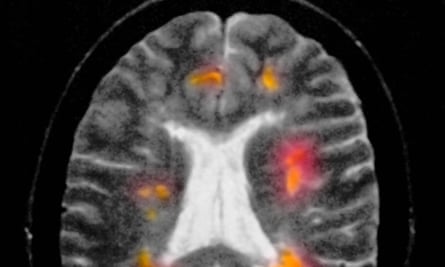
Doctors believe they are closer to a treatment for multiple sclerosis after discovering a drug that repairs the coatings around nerves that are damaged by the disease.
A clinical trial of the cancer drug bexarotene showed that it repaired the protective myelin sheaths that MS destroys. The loss of myelin causes a range of neurological problems including balance, vision and muscle disorders, and ultimately, disability.
While bexarotene cannot be used as a treatment, because the side-effects are too serious, doctors behind the trial said the results showed “remyelination” was possible in humans, suggesting other drugs or drug combinations will halt MS.
“It’s disappointing that this is not the drug we’ll use, but it’s exciting that repair is achievable and it gives us great hope for another trial we hope to start this year,” said Prof Alasdair Coles, who led the research at the University of Cambridge.
MS arises when the immune system mistakenly attacks the fatty myelin coating that wraps around nerves in the brain and spinal cord. Without the lipid-rich substance, signals travel more slowly along nerves, are disrupted, or fail to get through at all. About 100,000 people in the UK live with the condition.
Funded by the MS Society, bexarotene was assessed in a phase 2a trial that used brain scans to monitor changes to damaged neurons in patients with relapsing MS. This is an early stage of the condition that precedes secondary progressive disease, where neurons die off and cause permanent disability.
The drug had some serious side-effects, from thyroid disease to raised levels of fats in the blood, which can lead to dangerous inflammation of the pancreas. But brain scans revealed that neurons had regrown their myelin sheaths, a finding confirmed by tests that showed signals sent from the retina to the visual cortex at the back of the brain had quickened. “That can only be achieved through remyelination,” said Coles.
====================


